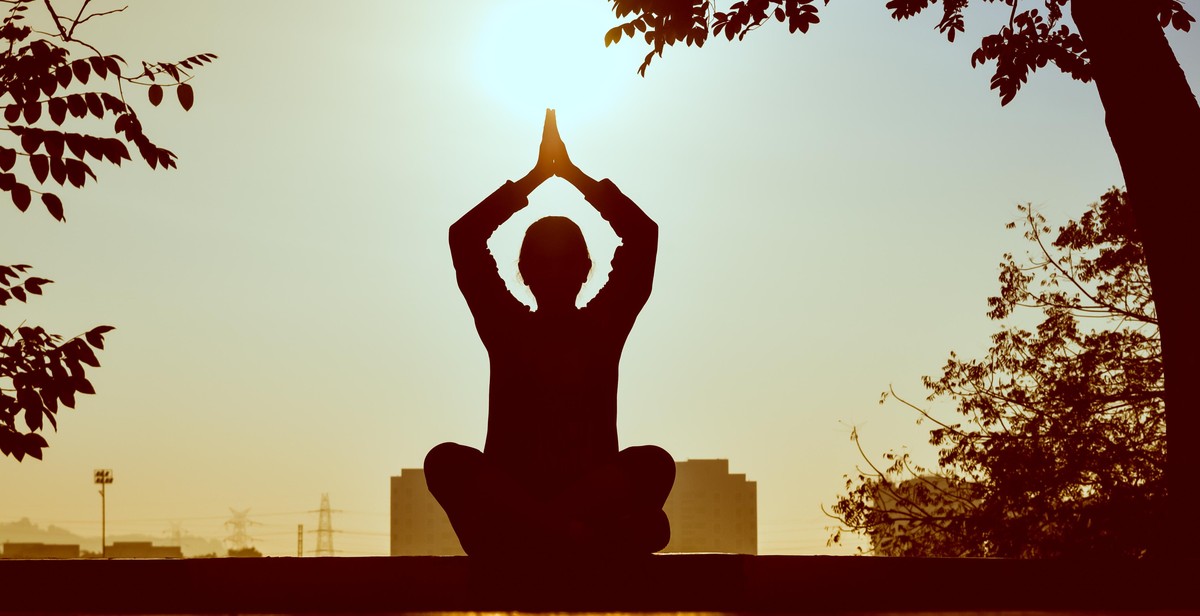Different types of meditation and how to choose the right one for you
Meditation is a powerful practice that has been used for centuries to promote relaxation, reduce stress, and improve overall well-being. There are many different types of meditation, each with its own unique benefits and techniques. Choosing the right type of meditation for you can be a daunting task, but with a little research and experimentation, you can find the perfect fit for your needs.
Types of meditation:
- Mindfulness meditation: This type of meditation involves focusing on the present moment and accepting it without judgment. It is often used to reduce stress, improve focus, and promote emotional stability.
- Transcendental meditation: This technique involves the use of a specific mantra and is typically practiced twice a day for 20 minutes each session. It is said to promote relaxation and reduce stress.
- Loving-kindness meditation: Also known as Metta meditation, this practice involves sending positive thoughts and feelings to oneself and others. It is said to promote feelings of compassion and well-being.
- Yoga meditation: This type of meditation involves incorporating physical postures and breathing techniques into the practice. It is said to promote physical and emotional well-being.
How to choose the right type of meditation:
Choosing the right type of meditation can be a personal and individual decision. It is important to consider your goals, preferences, and lifestyle when selecting a technique. Some factors to consider include:
| Factor | Considerations |
|---|---|
| Goals | What are you hoping to achieve through meditation? Stress reduction, emotional stability, improved focus, or something else? |
| Preferences | Do you prefer a guided or unguided practice? Would you like to incorporate physical movement into your meditation? |
| Lifestyle | Consider your schedule and how much time you can realistically dedicate to meditation each day. Also, consider whether you prefer to meditate alone or in a group setting. |
By considering these factors and experimenting with different techniques, you can find the right type of meditation that works for you and helps you achieve your goals.
Understanding Meditation
Meditation is a technique that involves training the mind to focus and achieve a state of calmness and relaxation. This practice has been around for thousands of years and is used by people all over the world to improve their mental and physical well-being.
Why is meditation important?
Meditation is important because it helps to reduce stress and anxiety, improve concentration and focus, and increase feelings of happiness and well-being. It has also been shown to lower blood pressure, improve sleep, and boost the immune system.
Benefits of meditation
The benefits of meditation are numerous and varied. Some of the most important benefits include:
- Stress reduction: Meditation has been shown to reduce the levels of stress hormones in the body, leading to a greater sense of calm and relaxation.
- Better concentration: Regular meditation practice can help to improve concentration and focus, making it easier to complete tasks and achieve goals.
- Improved emotional well-being: Meditation has been shown to reduce symptoms of depression and anxiety, and increase feelings of happiness and well-being.
- Lower blood pressure: Meditation has been shown to lower blood pressure, which can help to reduce the risk of heart disease and stroke.
- Better sleep: Meditation can help to improve sleep quality, making it easier to fall asleep and stay asleep throughout the night.
Overall, meditation is a powerful tool for improving both mental and physical health. By incorporating regular meditation practice into your daily routine, you can experience the many benefits that this ancient practice has to offer.

Types of Meditation
Meditation is a powerful tool for relaxation and stress relief. It can help you to achieve a calm and peaceful state of mind, improve your focus and concentration, and enhance your overall well-being. There are different types of meditation, each with its own unique benefits and techniques. Here are some of the most popular types of meditation:
Mindfulness Meditation
Mindfulness meditation is a simple and effective way to focus your mind and improve your awareness. It involves paying attention to your thoughts, feelings, and physical sensations in the present moment, without judgment. This type of meditation can help you to reduce stress, anxiety, and depression, improve your mood, and increase your self-awareness. Mindfulness meditation can be practiced alone or with a group.
Transcendental Meditation
Transcendental meditation is a technique that involves repeating a mantra, which is a word or phrase that has a calming effect on the mind. This type of meditation is designed to help you achieve a deep state of relaxation and mental clarity. Transcendental meditation is often practiced for 20 minutes twice a day, and it can be done alone or with a group.
Vipassana Meditation
Vipassana meditation is a type of meditation that involves focusing your attention on your breath and observing your thoughts and feelings without judgment. This type of meditation is designed to help you become more aware of your thoughts and emotions, and to develop a greater sense of compassion and kindness towards yourself and others. Vipassana meditation is typically practiced for 10 to 20 minutes per day, and it can be done alone or with a group.
Loving Kindness Meditation
Loving kindness meditation is a type of meditation that involves generating feelings of love, kindness, and compassion towards yourself and others. This type of meditation can help you to reduce stress, anxiety, and depression, and to increase your sense of connection and well-being. Loving kindness meditation is typically practiced for 10 to 20 minutes per day, and it can be done alone or with a group.
Yoga Meditation
Yoga meditation is a type of meditation that combines physical postures, breathing techniques, and meditation to create a holistic practice for the body and mind. This type of meditation can help you to reduce stress, improve your flexibility and balance, and increase your overall sense of well-being. Yoga meditation can be practiced alone or with a group, and it is often taught in yoga studios or fitness centers.
| Type of Meditation | Benefits | Techniques | Duration |
|---|---|---|---|
| Mindfulness Meditation | Reduce stress, anxiety, and depression; improve mood and self-awareness | Paying attention to thoughts, feelings, and physical sensations without judgment | 10 to 20 minutes per day |
| Transcendental Meditation | Deep relaxation and mental clarity | Repeating a mantra | 20 minutes twice a day |
| Vipassana Meditation | Develop compassion and kindness towards yourself and others; increase self-awareness | Focusing on breath and observing thoughts and feelings without judgment | 10 to 20 minutes per day |
| Loving Kindness Meditation | Reduce stress, anxiety, and depression; increase sense of connection and well-being | Generating feelings of love, kindness, and compassion towards yourself and others | 10 to 20 minutes per day |
| Yoga Meditation | Reduce stress, improve flexibility and balance, increase overall sense of well-being | Combination of physical postures, breathing techniques, and meditation | Varies |
Choosing the right type of meditation depends on your personal preferences and goals. It’s important to find a type of meditation that resonates with you and that you

How to Choose the Right Meditation for You
With so many types of meditation available, it can be overwhelming to choose the right one for you. Here are some tips to help you make an informed decision:
Consider your goals
The first step in choosing the right meditation for you is to consider your goals. Why do you want to meditate? Are you looking to reduce stress and anxiety? Improve your focus and concentration? Increase your self-awareness and spirituality? Different types of meditation can help you achieve different goals, so it’s important to identify what you want to get out of your meditation practice.
Identify your preferences
Once you know your goals, you can start to identify the types of meditation that align with your preferences. Do you prefer a guided meditation or a silent one? Do you want to focus on your breath, a mantra, or visualization? Do you prefer a sitting or moving meditation? There’s no right or wrong answer here, it’s all about what works best for you.
Be patient and persistent
It’s important to remember that meditation is a practice, and it takes time and patience to develop. Don’t expect to find the perfect type of meditation for you right away. Be open to trying different types and be patient with yourself as you explore and develop your practice. It’s also important to be persistent and consistent with your practice. Even just a few minutes of meditation each day can have significant benefits over time.
Conclusion
By considering your goals, identifying your preferences, and being patient and persistent, you can choose the right type of meditation for you. Remember, there’s no one-size-fits-all approach to meditation, so be open to exploring and finding what works best for you.
Conclusion
Meditation is a powerful tool that can help you achieve inner peace, reduce stress, and improve your overall well-being. With so many different types of meditation available, it can be overwhelming to choose the right one for you. However, by considering your personal preferences, goals, and lifestyle, you can select a meditation practice that aligns with your needs.
Benefits of Meditation
The benefits of meditation are numerous and well-documented. Regular meditation practice can help reduce stress and anxiety, improve focus and concentration, boost the immune system, and promote better sleep. Moreover, meditation can help you develop a deeper sense of self-awareness and cultivate a more positive outlook on life.
Choosing the Right Type of Meditation
When choosing a type of meditation, it’s important to consider your personality, lifestyle, and goals. If you’re looking for a more active form of meditation, you may want to try walking meditation or yoga. If you prefer a more traditional seated practice, mindfulness or transcendental meditation may be a good fit. Additionally, if you’re interested in exploring different spiritual traditions, you may want to try mantra meditation or loving-kindness meditation.
Getting Started with Meditation
If you’re new to meditation, it’s important to start slowly and be patient with yourself. Set aside a few minutes each day to practice, and gradually increase the duration as you become more comfortable. Additionally, consider taking a meditation class or working with a teacher to ensure that you’re practicing safely and effectively.
By incorporating meditation into your daily routine, you can experience the many benefits of this ancient practice and cultivate greater peace and happiness in your life.
